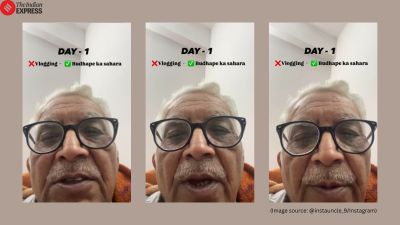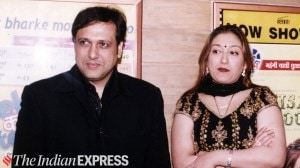Told In Time
One night he was visited by an image of an old woman by a river, holding the hand of a body that had just been washed up on its shores. W...

One night he was visited by an image of an old woman by a river, holding the hand of a body that had just been washed up on its shores. With the image came the certainty that the scene had happened, and that it was not the first time that the river had yielded a dead man in the arms of an old and twisted woman. Forced to leave his homeland in 1973 after Gen. Pinochet seized power, the Chilean writer Ariel Dorfman had finally found refuge three years later in Amsterdam, Holland, when one night this story, which forms the core of the play The Women, came to him.
8220;I wrote all night, the same poem over and over again, trying to hear the woman I had invented and who nevertheless seemed to have a life of her own8230;Except that the old woman was not content. She would not leave me alone. She wanted the world to know what happened before, what happened afterwards, she wanted to be narrated, told in time, filled with a world and filling it. That old woman wanted a destiny and she would not rest until I had given it to her.8221; This experience first became a novel and subsequently Dorfman made it a play.
Staged by Ruchika in Feisal Alkaazi8217;s direction, The Women was a moving enactment of the chilling reality about missing men and women, who snatched from the homes by the secret police, are never heard of again. The torture of uncertainty and the pain of loss combined with the desire to bury the past and live anew, drives every woman in the village to claim the dead body and the river throws up as her own beloved. Gray, black, brown, colours empowering the dark lyrical works of Spanish poet Lorca are discovered in this play, sucking one into the majestic glory of female passion, grief, strength and revenge. At another level the play is about the need for human beings to tell stroies, and how in today8217;s world, those who have crucial stories to tell to the human race, are most often condemned to silence.
Feisal crafts a moving picture, using as base power the the poetic underpinnings in the script. Both individually and collectively the energy emanates from a strong female cast led by Mona Chawla. A trained actress, Mona is primarily guided by an inner force. And when study and practice hone that intensity, the results have been excellent: Her portrayal of the old widow, Sofia, was a superbly evocative performance.
Brecht8217;s The Good Woman of Setzuan, one of his most brilliant parables for the theatre, explores the paradox of ends and means and the tragic dilemma imposed by society that forces the individual to suppress natural human goodness in order to survive in a competitive world. Shen Te, the good woman has to transform herself into a calculating male cousin, to protect her small cigarette shop from clever relatives and shrewd traders. To save her unborn child, Shen Te abandons her female8217; self and becomes a hard-nosed capitalist. In his8217; employ are the very same people she8217; so gently harboured in their times of need.
Adapted by Amitabh Srivastava as Kanpur ki Aurat, Bhali Ramkali, and staged by Asmita in Arvind Gaur8217;s direction, the play was a lively interpretation of the theme by a cast of new comers. Aparna Singh as Ramkali, the prostitute with a soft heart, whom the gods exhort to remain good8217; at all cost, gave a good account as she went through the contradictions of trying to be good to others and herself at the same time. By setting them to the mundane routine music he has used umpteen times, Piyush Mishra took away from his own tidily penned lyrics.
- 01
- 02
- 03
- 04
- 05






























